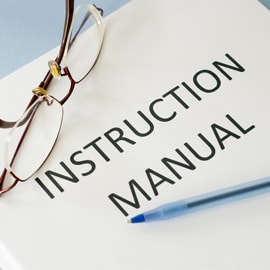
After you’ve met with Dr. Taylor to determine the most appropriate treatment plan for your individual needs, you will need to begin to ready yourself for the physical and psychological challenges of your bariatric operation. Though weight loss surgery will require you to take specific preparatory steps in the days leading up to surgery, there are several things you should do in the months before any major surgery to ensure the most positive outcome. You will need to follow some general pre-operative instructions to make sure your surgery is as safe and comfortable as possible.
Once you’ve made the decision to undergo bariatric surgery, you should begin implementing the following modifications to your behavior:
Quit smoking. If you’re a smoker, there has never been a better time to quit. Smoking restricts the blood vessels, reducing your body’s ability to heal by inhibiting circulation to the skin. It can also increase your chances of developing blood clots in your legs, increase your risk of pneumonia due to hampered lung function and lead to increased stomach acid production, a potential cause of gastric ulcers after surgery. To avoid these complications and the negative impact that smoking will have upon your efforts to lose weight and become healthier, you should quit smoking at least 30 days before surgery.
Avoid alcohol. Devoid of nutritional value and high in calories, alcohol can be highly detrimental to any weight loss diet. Additionally, your liver will become especially vulnerable to toxins like alcohol when you begin to rapidly lose weight, and alcohol consumption can cause dumping syndrome in patients of gastric bypass. For the best results with weight loss surgery you should strictly limit or completely avoid alcohol for at least one month prior to surgery.
Begin taking a daily multivitamin. If you don’t already take a multivitamin every day, now is the time to start. Vitamins will help your body recover by improving your overall health while also helping you to avoid the nutritional deficiencies that can sometimes accompany certain types of weight loss surgery. Beginning to take vitamin supplements now will help you form a habit that will persist after your operation. Ask Dr. Taylor for guidance when selecting the proper multivitamin for your weight loss operation.
Begin an exercise routine. Physical activity will be an important part of maintaining your weight loss after you’ve recovered from surgery. As such, you should begin implementing an exercise routine before your surgery to familiarize yourself with the requirements of this physical aspect of weight loss. You will have to adjust to a lot of new things in your life after surgery. Organizing your exercise schedule and routine before surgery will keep you from having to do it in the challenging days after your operation.
Follow dietary guidelines. Adhering to dietary requirements will ensure your success with any bariatric procedure. Your dietary adjustments may begin two to three months before your operation, but speak with Dr. Taylor about your individual needs and the requirements of the operation you will be receiving. Following these guidelines before your surgery will help to reduce body fat, preserve lean body mass with adequate protein consumption, prepare your body for recovery and help you adjust to your dietary needs after the operation.
Recruit an escort. You will need a close friend or relative to drive you home after your operation and, if possible, stay with you for a few days to assist with the functions that anesthesia’s after-effects will make difficult. Because your ability to drive, walk, prepare meals and exercise personal hygiene will be inhibited after surgery, this person should ideally be comfortable helping you perform daily tasks. He or she should also be comfortable offering emotional support as you adjust to your new body after surgery.
Arrange time off from work. Though most patients can return to work in as little as two weeks after bariatric surgery, your individual needs for recovery time will need to be discussed with Dr. Taylor. To ensure that your body heals properly before you begin putting stress on it again with travel and movement, you will need to take the right amount of time away from the daily rigors of your job. You should explain to your employer that your movement may be hindered for several weeks after you return to work, though you do not have to disclose the nature of your surgery.
If you’ve taken these steps and any additional ones given to you by Dr. Taylor in the months before surgery, you will be ready for the required preparatory steps in the week before surgery.
Suggested Reading
Long-Term Success with Weight Loss
Eating and Exercise Behavioral Changes to Lose Weight
Eating in Restaurants After Weight Loss Surgery
Also In This Section
- Bariatric Surgery May Restore Monthly Cycles in Obese Women
- Bariatric Surgery May Prevent Heart-Related Incidents
- For Diabetes, Surgery a Better Option than Standard Treatment
- Help Cholesterol by Losing Weight
- Speaking With Your Physician May Enhance Your Weight Loss Efforts
- Improve Migraines with Weight Loss Surgery
- Flu Shot Less Effective for the Obese
- Benefits of Weight Loss before Bariatric Surgery
- Keep Up with Weight Loss
- Warm Up Your Body Even In Cold Weather
- Life after Weight Loss Surgery
- Health Risks Associated with Obesity
- Ten Reasons You Should Lose Weight
- Bariatric Surgery Can Help You to Fight Obesity
- How to Begin Exercising After Gastric Bypass Surgery
- New Risk Calculator Assists Patients Considering Bariatric Surgery

